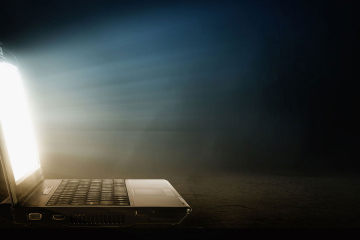It was quite some time ago now that Moses ascended the mountain, and returned with a set of rules that changed the world.
Don’t steal.
Don’t fuck your friend’s woman.
Don’t talk shit about God.
If we strip any modern cynicism we may have about such religious doctrine, what I think we see is that his commandments represent something extraordinary. They are higher truths, seen in a transcendent moment, that can then be encoded, and remembered when one returns to “ordinary reality”. And thus act as a pathway back up, slowly, toward the higher truth.
His commandments (or Gods depending upon whom you attribute authorship to) changed the world. They enabled our ancestors of the time to divert themselves away from the chief problems (sins) of the time, and live a more wholesome life.
But times have changed.
The great sins of our times are not what they were. My great challenge is not to refrain from the irresistible urge to steal my neighbours donkey. Moses’ commandments have done their job. We have new problems that we must learn to overcome.
I believe that one of the great modern sins, for which we need new commandments, is that of distraction, specifically digital distraction.
So here are 6 commandments for a new digital age.
1. Thou shalt not be a digital narcissist
The wonders of the world are not a backdrop for your Instagram selfies. The privilege to travel the world is not supposed to be used as a means for enhancing your social media profile.
I visited Stonehenge recently. One of the world’s most important megalithic sites—an absolute wonder of ancient engineering and astronomical observation. It’s formation perfectly aligns with the setting sun at Winter Solstice, and the rising sun at Summer Solstice. We know that people from all over the British Isles travelled to Stonehenge to participate in the most important ceremonies of the age. This majestic site oozes significance.
And yet as I stood marvelling at its nature, breathing in the power of the place, I was distracted by the people around me. They would pose for selfies, seeing these great stones in the little pixelated screens of their iPhones, and then turn and walk away without actually looking at the stones!
The unprecedented power of the social platforms we have been given access to, are not best used as stages for our own digital narcissism. The fulfilment does not come from the performance you manufacture, crafted from carefully posed selfies in front of Notre Dame, but of the spiritual substance that you draw in as you walk its hallowed nave.
You can communicate to untold numbers of fellow humans from this platform. Share what can change us. Not what makes you feel more special.
2. Thou shalt not incessantly pull the lever on the smart-phone slot machine
Let me just check again…
Even though it’s only been 17 seconds since I last checked Facebook, …maybe there’s something good there now. The elusive comment that makes my day worth living. The fiftieth “like” that will banish the cloud of meaninglessness from my mind. Or maybe I’ve got a new whatsapp message that will prove that I am actually loved after all.
So we keep pulling the lever on the digital slot machine, hoping for a jackpot. Pulling out our phone, and going through a patterned cycle of checks. If you pay attention, you may see that you have an ingrained loop. Mine goes something like this.
- co.uk/sport to check if there’s some new football news.
- co.uk/sport, just in case they have news the bbc doesn’t.
- twitter to see what latest outrage has been committed by the politically correct gestapo.
- youtube to see if there’s a new Jordan Peterson upload, or ultimate fail video.
- Nothing? Start the cycle again. After all, it’s been at least 2 minutes since I checked BBC sport.
What’s your cycle? When you’re checking out of the present, and open up your internet browser, or pickup your phone, where’s the first place you go?
It’s the new addiction. Hunting the little dopamine hit that is injected into our neurochemistry when we find some interesting new article we can feel smart from pretending to read. The little oxytocin boost from 3 more likes on our Stonehenge selfie.
I watch over people’s shoulder on the Amsterdam metro, circling through their own digital loops.
Facebook. Whatsapp. Instagram. LinkedIn. Repeat.
And then even if they give up and return the phone to their handbag, I can measure it in minutes before they whip it out again and start again from the beginning.
As a friend used say “there’s no cheese down that tube”. You will not find what you seek. The sense of achievement that the dopamine urge tempts you with. The feeling of social inclusion that the oxytocin craving promises.
Each pull of the lever increases the urge to pull it again next time.
Put down the phone. Raise your eyes. Soften your clench. Notice the world around you.
3. Thou shalt not covet thy neighbour’s social media profile
It doesn’t do any good my friend.
We’re wired to seek the top of the social hierarchy. We want to “master our craft” and be “seen for our gifts”.
Jordan Peterson brilliantly describes the sad state of affairs we now find ourselves in, in the digital age. Before the internet, it wasn’t so hard to be top of your tree. Being the best yogi in the village isn’t so hard. Being a regional expert on post-structuralism intersectional theory is attainable. The competition is relatively thin. The rewards of reaching the top within your grasp.
Now we live in a world where we’re connected to almost every other competent human alive. The hierarchy now no longer tops out at the borders of the village or town. No matter how good you think you might be at your particular craft, opening up YouTube and having a quick search will reveal the prodigy that does stuff that you couldn’t even imagine, and has the 2 million views that proves it.
Feeling insecure about the state of your work? The longing for the dopamine will take you onto your Facebook feed, where you will discover posts from your friends that depict the amazing client they just signed, or the workshop they just crushed. You’ll see all your friends having an amazing time…without you.
The promise of dopamine has provided the opposite. You feel even worse that when you started. No problem. Just open up the next app in your cycle. Maybe there…
No. The goal is self-realization. Emphasis on self. Not “having what she’s got”, not “better than him”. Self improvement. Or in the wise words of Dr. Peterson, compare yourself to who you were yesterday, not who someone else is today.
This is much more easily achieved when you’re not constantly snooping on the successes of others through their social media profiles.
4. Thou shalt not perpetuate political outrage
No matter which side of the fence you find yourself on—the social justice crew, working to level the playing field, or the secret intellectual web that is trying to keep back the tides of madness—don’t stir up the shit any further.
Incessant outrage about the state of the world, penned in 140 characters does little to move the conversation forward, and will more likely simply irritate you and derail the more important work that you should actually be doing.
Making yourself righteous by pushing off the wrongness of the “other side” is not noble. It’s shit stirring. It’s dehumanization. It doesn’t help us weave this unprecedented complexity into a human story that makes sense to us.
But spouting your passionate condemnation of the madness of this leader, or that policy does help with something big. It helps give you the feeling that you have something important to say. It helps you feel like you’re making a difference. You’re not. But it covers over the hole in your true desire to make a difference.
So instead, go make a real difference.
5. Thou shalt not sell your attention to the highest bidder
You may think, that you are the valued customer of Facebook or Instagram. In fact, you are not. You are the product. The customers are the advertisers, who are offered your attention by the platform.
Attention is precious. And every time you mindlessly lose yours in the never ending scroll of the news feed, you have sold yours to the highest bidder.
In 1997, IBM’s super computer Deep Blue achieved a world first. It beat the world’s best chess player Gary Kasparov. It was a triumph of Artificial Intelligence over the human mind.
What you may not know is that the Facebook Newsfeed, and YouTube’s recommended videos are also run by A.I. And power of this A.I. is hundreds of times more powerful than the computer that beat Kasparov. The Social Media A.I. has one objective only, to capture your attention for as long as possible.
So, every time you log onto Facebook, you’re playing attention chess against an some of the most powerful A.I. ever invented. And you don’t even realise it.
Your attention is so much more valuable than its commodification for online advertisers. What could you use it for?
6. Thou shalt befriend airplane mode
Every phone has one. It’s designed for—as the name implies—use on airplanes. It turns off your Wi-Fi and phone signal. It stops all contact with the outside world.
We’ve never lived in such a connected world. Your ability to disconnect is what sets you apart from the masses. This is Cal Newport’s “deep work”—the space where free from distraction, you focus on the work that really matters to you, and create something meaningful.
When you sit down to do something important, tune out the world around you. Looking at your phone because your mum just whatsapp’d you to ask about the summer vacation plans does not help you do the deep work.
Try this. When you go to bed, put your phone on airplane mode. And don’t take it off until you’ve done at least an hour of focussed work the next morning. If you’re used to checking your messages as soon as you open your bleary ideas, this may feel uncomfortable. It’s your reliance on outside stimulation. The good stuff comes from inside. Give it a chance to speak before you connect with the entire planet.
What’s really needed is the deep work
The work that comes from deep inside you. The stuff that only you can create. The stuff that is the product of deep, focussed and dedicated hard graft.
And the entire interconnected world is available to receive it, if you create it.
The great sin that has arisen to counter-act this interconnected freedom is distraction. In that moment, when your work really requires you to sit in the uncomfortable paradox, the problem that you don’t yet know how to solve—it’s so much easier to just pick up your phone and relieve the pressure.
Just this once. I’ll rest for a moment.
And then you surface some indeterminate time later, infected by the successes and outrages of everyone else, dulled by the passive surfing on a tiny screen, robbed of the moment of tension that had within it, the creative seeds for something new, something deep.
Choose differently.
The world desperately wants the deep work, to help us steer through the addictive distractions of a digital world.





Hi, Ewan,
Good writing. I’ve recently got into the habit of switching my phone off at night, so I could relate a lot to this article. However, the thing that’s made me make this comment is the last sentence: is it missing a final word or perhaps more?
Fixed 🙂
Great article, Ewan!
I enjoyed this article quite a lot, and will share with my daughter – even more a product of the digital world than I.
Your last sentence seems to drop off without its final word though – and I wonder if you could add it. Your wise thoughts deserve completion, and it will irk my perfectionist daughter! (Another article for another time on how perfectionism steals our joy and even wastes our precious time!)
Thank you for writing!
Fixed 🙂
And I hope it helps your daughter!